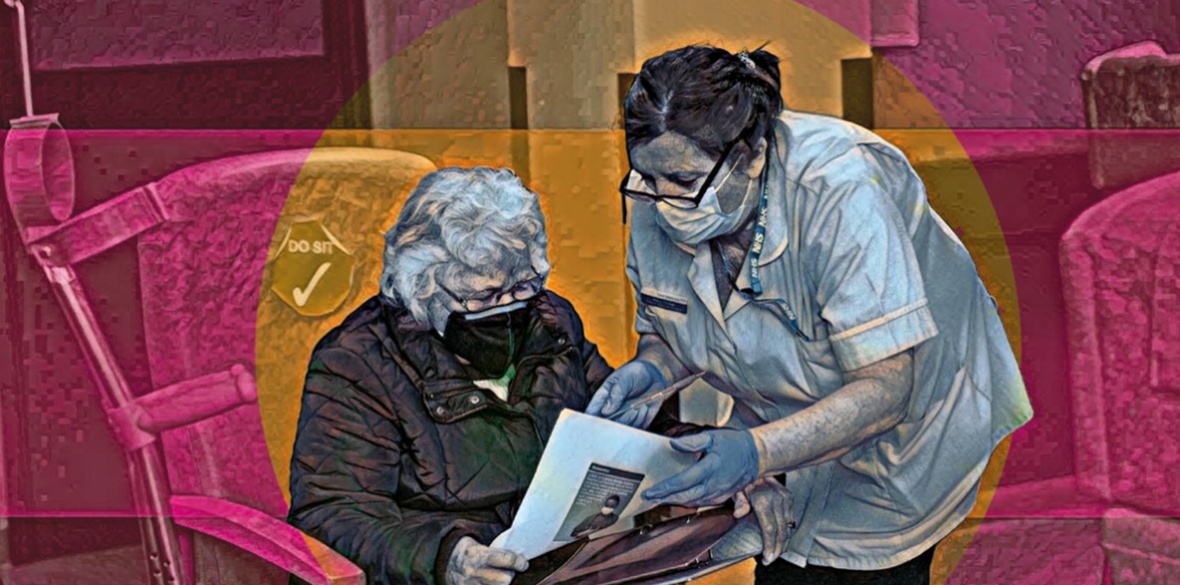This is the last article you can read this month
You can read more article this month
You can read more articles this month
Sorry your limit is up for this month
Reset on:
Please help support the Morning Star by subscribing here
IN 2015, the last major attempt to legalise assisted suicide in Britain was resoundingly defeated in the House of Commons with a vote of 330 against and 118 in favour. At the time, Jeremy Corbyn spoke against the Bill, saying to supporters: “This Bill would put the most vulnerable people at risk.”
Pointing to the flaws in our social care system, Corbyn was rightly fearful of how legalised assisted suicide would impact vulnerable members of society. “I don’t believe we should be talking about assisted dying until our social care and health care systems have been improved sufficiently with a focus on the sick and elderly,” he added.
Fast forward to today, following the economic impacts of Covid-19, a health system that is on its knees, reports of horrific treatment of residents in care homes, and a cost-of-living crisis, and Corbyn’s words don’t seem radical enough for our current economic climate.
Assisted suicide campaign group Dignity in Dying is pushing for Britain to legalise assisted suicide and to introduce a law like that of the US state of Oregon, where it has been legal since 1997. The group says that any law would be limited to terminally ill, mentally competent adults who must end their own lives (rather than someone else doing it, for example by lethal injection), after a reflection period and assessment by a doctor and a judge.
While this description may have the sanitised allure of safeguards and reasonable protection for the vulnerable, such laws are a naive attempt to solve the problem of suffering and, in fact, open the door for the widespread premature deaths of the most vulnerable.
Assisted suicide campaigners in Britain often argue that assisted suicide is only available to the well-off who can afford to travel to countries like Switzerland to end their lives. While this may be the case, it does not follow that allowing assisted suicide in Britain will therefore be of great benefit to the poor. All indicators seem to show the opposite.
Take Canada for example. Assisted suicide and euthanasia have been legal across all provinces in Canada since 2016 and, according to the most recent report, deaths by these means accounted for 3.3 per cent of all deaths in Canada in 2021.
A spate of news articles in the last year has shown horrifying cases of people being killed by assisted suicide because they were unable to get appropriate housing to accommodate their disability. One lady, known as Denise, explicitly said: “I've applied for Maid [Medical Assistance in Dying] essentially... because of abject poverty.” Recent polling devastatingly shows 28 per cent of Canadians support assisted suicide in cases of homelessness and 27 per cent for those living in poverty.
Even in Oregon, which British campaigners consider the poster child for assisted suicide legislation, the picture is far from pretty.
In 2022, 46 per cent of people who died by assisted suicide in Oregon stated concerns about being a burden on family, friends or caregivers as contributing to their decision. Whistleblowing doctors have reported safeguards not being followed, including psychiatric referral, a second opinion, and a six-month estimate for death.
But perhaps this doesn’t matter? After all, if you believe in a person’s “right to die,” why should there be any limits to how, when, and why a person can choose to end their own life?
If ending unendurable suffering is the main motivation for allowing assisted suicide, it is not at all clear why, as in Oregon, this should be limited to terminally ill adults. Instead, it should be available to psychiatric patients, those living in poverty, and children too.
As Baroness Tanni Grey-Thompson recognises, once such legislation passes, “there will be no going back.” This is not merely a recourse to a slippery slope; it is a logical next step, whether that would happen soon after legislation or years later. Why should only some people have the right to die?
Those of us opposed to such legislation can’t be naive either. There is endless work to do to stand in solidarity with those who are suffering and dying. In every area of society, starting in our own homes, we need to fight injustices that lead people to want to die.
The reality is, our social care system is a mess. The sick, disabled, elderly, poor and dying are currently facing frightening difficulties accessing the care and support that they need.
As much as we may want to deny it, Corbyn is right to remind us that “not everyone is nice” and, without a doubt, not everyone is being treated with the dignity that they deserve. But, in such instances, so-called dignity in dying is an insulting and naive proposal when dignity in living is unattainable for so many.
Chris Whitehouse is a governor of the Anscombe Bioethics Centre, a member and trustee of the Institute of Medical Ethics and chair of the lobbying agency Whitehouse Communications.










